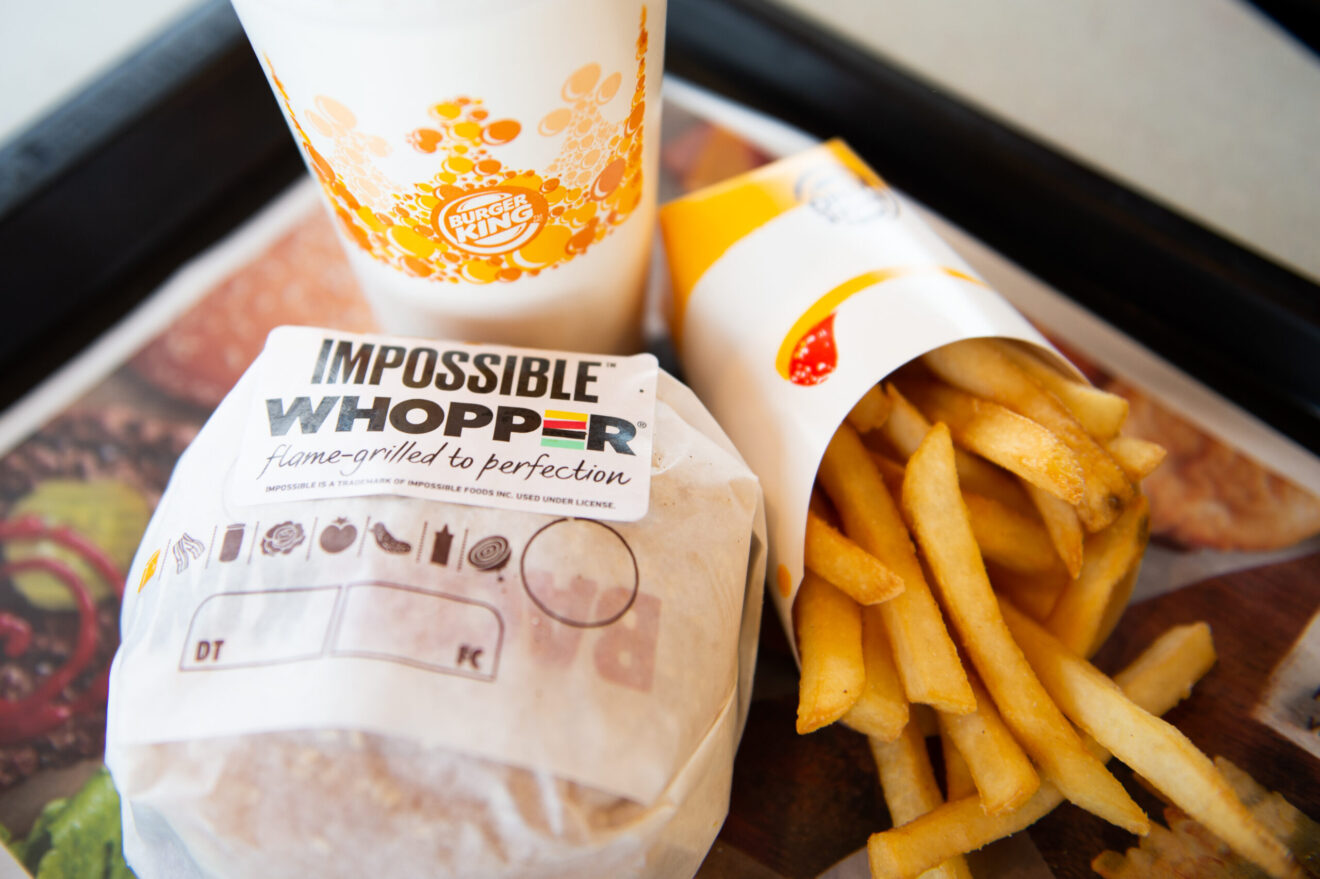A few years ago, the biggest issues plant-based meat companies faced were educating consumers about their products and convincing restaurants and retailers that if they stocked it, people would come.
High-profile launches like the roll out of Impossible Sliders at White Castle restaurants and the placement of Beyond Burgers at mainstream supermarket chains built big buzz for the products from Impossible Foods and Beyond Meat, fueling momentum for the startups.
US sales of plant-based foods grew 31.3% between April 2017 and April 2019, to about $4.5 billion, according to SPINS data collected for the Good Food Institute and the Plant Based Foods Association.
Demand soared and continues to grow with nearly weekly announcements of more restaurant chains and retailers adding the vegan meat alternatives, a trend that has brought periodic growing pains and challenged supply chains to keep up.
Earlier this year, shortly after the announcement that Burger King would roll out the Impossible Whopper nationwide, maker Impossible Foods faced challenges in fulfilling its fast-growing orders.
In May, the brand announced it had raised $300 million in new funding and hired tech industry veteran and former Verifone executive Sheetal Shah as senior vice president for product and operations. The additional capital and Shah’s experience in quickly scaling up production in the tech world were expected to help Impossible grow production more quickly to meet demand, chief financial officer David Lee said in a May interview.
Part of Impossible’s plan for the new funding was to add a third shift at the company’s production facility, along with a second production line that was added last month.
Since then, Burger King has completed the national roll out of the Impossible Whopper, and, in addition to the restaurant channels where it began, Impossible Foods will debut its burgers in retail channels in September. Earlier this month, corporate caterer Sodexo announced plans to serve plant-based burgers and sausage patties from Impossible at 1,500 of its locations.
Rival Beyond Meat, which began with a retail roll out and has since been expanding to menus at restaurants, including most recently Tim Hortons and Subway, raised about $240 million in a May IPO and this month announced plans to raise an additional $40 million in a secondary stock offering. The company said that cash would be used to boost production to meet growing demand.
Like Impossible, Beyond has also sealed a key deal in foodservice, signing with Aramark to supply its plant-based burgers and sausages at venues including hospital cafeterias and ballparks.
While Impossible and Beyond have won the most attention in the plant-based meat segment, other startups are also doing a balancing act as they work to scale up production to meet fast-growing demand.
At Rebellyous Foods, formerly Seattle Food Tech, the goal has always been to create a plant-based chicken nugget that’s both less expensive and more nutritious than the original animal-based nugget, founder and CEO Christie Lagally said.
CEO Christie Lagally
The company is gearing up to move production from a commissary kitchen producing about 700 pounds of product per month to a 21,000-square-foot headquarters and production facility this fall. The new production line will be able to turn out about 5,000 pounds of plant-based meat monthly at the outset and ultimately scale up to between 60,000 and 100,000 pounds per month, she said.
The company has signed local restaurants and foodservice accounts, including Swedish Medical Center and Microsoft’s corporate campus. Rebellyous is also in talks with other suppliers to get the product on the menu at sports stadiums and other venues, Lagally said.
Capacity is limited until the move, and expanding into the new facility and ramping up production is expected to bring the price of the nuggets down further. The lower price and and growing demand from restaurant and foodservice operators that have tried the product are expected to demonstrate the critical mass more foodservice distributors need to add the nuggets to their offerings, she said.
The company has no plans to roll out in retail channels under its own brand, but ultimately aims to become a production partner for other brands. But that part of the plan is likely to be on the back burner for at least a few years.
“Our own demand has taken over at this point,” she said.
Related stories:
- Oat milk’s popularity expands to the ice cream case
- How can grocers and food producers cater to flexitarians?
- Gen X, millennials are a growing force behind fancy food trends
_____________________________________
If you enjoyed this article, sign up for Restaurant Smartbrief to get news like this in your inbox, or check out all of SmartBrief’s food and travel newsletters as we offer more than 30 newsletters covering the food and travel industries from restaurants, food retail and food manufacturing to business travel, the airline and hotel industries and gaming.
